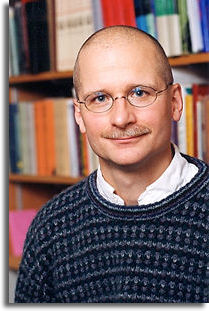
The comedian Jack Paar famously explained his electoral apathy by saying,Im like the little old lady who said: I never vote; it only encourages them.
Disgust, contempt and despair may all be perfectly serviceable and routinely invoked justifications for staying out of the voting booth, but Todd D. Whitmore, associate professor of theology and director of the Program in the Catholic Social Tradition at the University of Notre Dame, has another: Conscience.
In his contribution to the recently published bookElecting Not to Vote: Christian Reflections on Reasons For Not Voting,Whitmore recounts his own conscientious decision during the 2004 presidential election to forgo choosing between President Bush and Sen. John Kerry.
Whitmores article,When the Lesser Evil is Not Good Enough: The Catholic Case for Not Voting,discusses the American Catholic bishops2003 letter on the responsibilities of what they calledfaithful citizenship,and laments its failure to address the limits of a Christians civic responsibility.
What is a faithful citizento do,Whitmore asks,if all the viable candidates in a particular election are not simply wrong on this or that policy, but are so egregiously in error from a moral as well as a political standpoint, that one cannot in good conscience vote for any of them?
In Whitmores view, the bishops reflexive repetition of the term faithful citizenshipseems toconflate the object of Christiansprimary citizenshipthe city of Godwith the human city.
In a recent interview with Religion News Service, Whitmore, who has not yet decided whether to vote next month, elaborated on the problem.
If you don’t allow for situations like abstaining,he said,then you basically make the earthly political order into a kind of God. The earthly political order is a good, but it’s not the ultimate good.
Whitmores article assesses the Bush administrations war and tax policies and Kerrys positions on the Iraq war and abortion and describes his conclusion that both 2004 candidates werenot simply wrong on foreign and domestic policy, but wrong atvery fundamental levels that are impervious to substantive change.
Perhaps unsurprisingly, Whitmores position is controversial among his own students at Notre Dame.
I have had studentsnot just those from the right side of the aisle, but from the left as wellwho argue that if I dont vote, then I forfeit the rightto criticize the elected candidate,he said recently.So, the reasoning goes, I should not say anything about Iraq or Katrina or torture.Even within the realm of secular reasoning, then, this conversation gets distorted.
Returning to the subject of recent episcopal reasoning, Whitmore said he thought that Americas Catholic bishopsare still too tied to the felt need of the past to prove ones American bona fides.Arguing for or even just allowing the possibility of the legitimacy of not voting cuts against this history.
I do find it heartening, though, to hear bishops call for civil disobedience with regard to laws against carrying out the works of mercy towards illegal immigrants,Whitmore said.Maybe there is hope.
_ Contact: Professor Whitmore at 574-631-6407 or_ " Whitmore.1@nd.edu ":mailto:Whitmore.1@nd.edu
TopicID: 29806